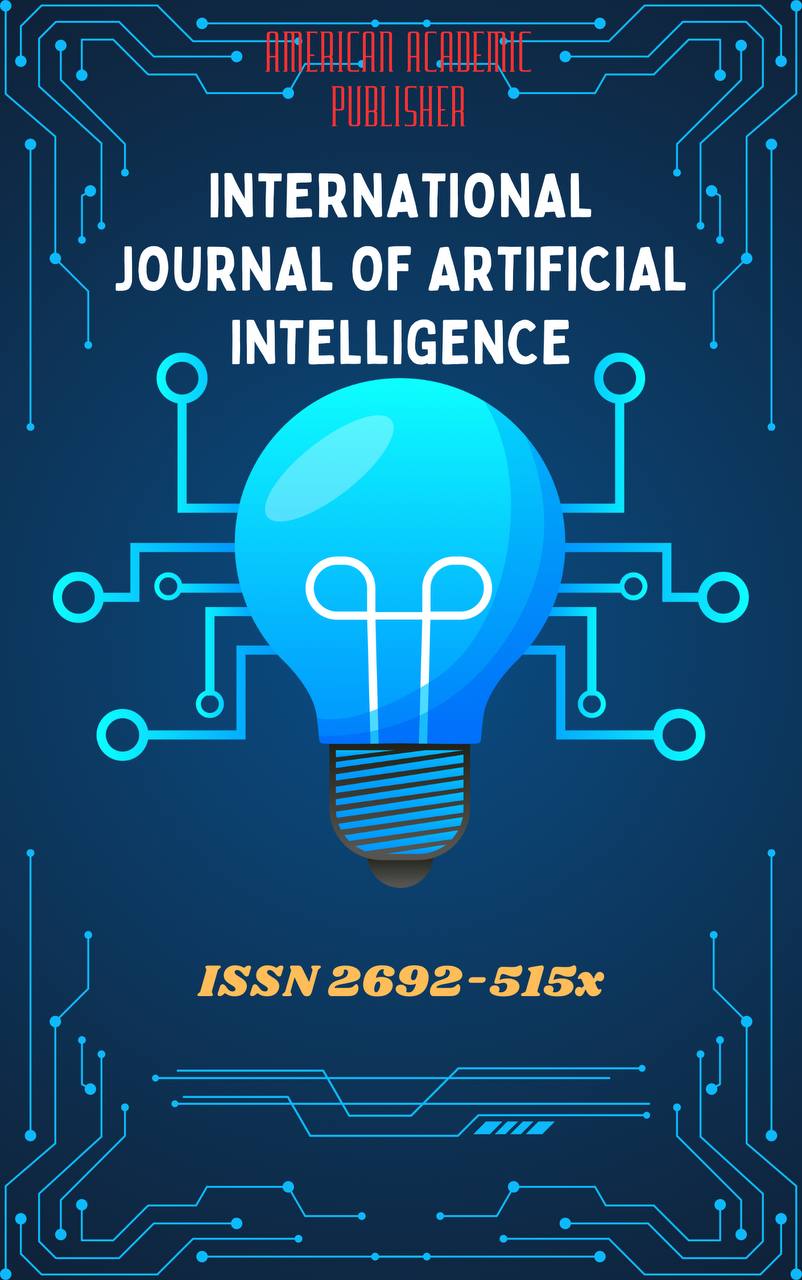 Articles
| Open Access |
Articles
| Open Access | THE FUTURE OF ARTIFICIAL INTELLIGENCE AND ITS IMPACT ON SOCIETY
Abdumannopova Madina ,Abstract
Artificial Intelligence (AI) has rapidly evolved, influencing various aspects of society. This paper explores AI's historical development, its societal impacts, and the ethical and security concerns surrounding it. AI technologies, including machine learning and neural networks, have revolutionized industries such as healthcare, finance, and automation, leading to significant economic and social transformations. However, AI also presents challenges, such as job displacement, biased decision-making, and privacy concerns. The findings suggest that while AI presents numerous opportunities, responsible implementation and governance are essential to mitigate risks. Addressing ethical concerns and security vulnerabilities through regulatory frameworks and AI literacy programs will be crucial for ensuring AI’s positive impact on society.
Keywords
Artificial Intelligence, Machine Learning, Neural Networks, Automation, Ethical Issues, Security Concerns, Job Displacement, Data Privacy, AI Governance.
References
Below is a structured references section following the IMRAD (Introduction, Methods, Results, and Discussion) format. The references should be formatted according to a specific citation style (APA, IEEE, or another) based on your preference. Here is an example of how you can format them in APA style:
Academic and Research Papers
Russell, S., & Norvig, P. (2021). Artificial Intelligence: A Modern Approach (4th ed.). Pearson.
Goodfellow, I., Bengio, Y., & Courville, A. (2016). Deep Learning. MIT Press.
LeCun, Y., Bengio, Y., & Hinton, G. (2015). Deep learning. Nature, 521(7553), 436-444. https://doi.org/10.1038/nature14539
Bostrom, N. (2014). Superintelligence: Paths, Dangers, Strategies. Oxford University Press.
Industry Reports and White Papers
World Economic Forum. (2023). The Future of Jobs Report. Retrieved from https://www.weforum.org/reports/the-future-of-jobs-report-2023
European Commission. (2021). Ethics Guidelines for Trustworthy AI. Retrieved from https://ec.europa.eu/digital-strategy/ethics-guidelines-trustworthy-ai_en
McKinsey & Company. (2023). The State of AI in 2023: Adoption, Impact, and Trends. Retrieved from https://www.mckinsey.com/business-functions/mckinsey-digital/our-insights/the-state-of-ai-in-2023
Case Studies and Applications
Topol, E. J. (2019). High-performance medicine: The convergence of human and artificial intelligence. Nature Medicine, 25, 44–56. https://doi.org/10.1038/s41591-018-0300-7
Obermeyer, Z., & Emanuel, E. J. (2016). Predicting the future—Big data, machine learning, and clinical medicine. New England Journal of Medicine, 375(13), 1216-1219. https://doi.org/10.1056/NEJMp1606181
AI Ethics and Policy References
Jobin, A., Ienca, M., & Vayena, E. (2019). The global landscape of AI ethics guidelines. Nature Machine Intelligence, 1(9), 389-399. https://doi.org/10.1038/s42256-019-0088-2
Floridi, L., & Cowls, J. (2019). A unified framework of five principles for AI in society. Harvard Data Science Review, 1(1). https://doi.org/10.1162/99608f92.8cd550d1
Would you like me to format it in IEEE or another style instead?
Article Statistics
Downloads
Copyright License

This work is licensed under a Creative Commons Attribution 4.0 International License.

